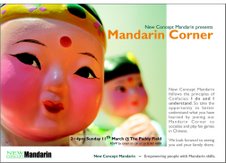
The May golden week has just passed by. Did you have a good holiday? Or were you hiding in your own home to avoid the crowd?
In China, there are three most important holidays: May Holiday (May 1 to May 7), National Holiday (October 1 to October 7), and Spring Festival (Date varies, but normally be late Jan or early Feb, and lasting for 7 days.
The public holiday is actually only 3 days for each of the three holidays, but people switched and put the previous weekend and the next weekend together to make it up to 7 continuous holidays, and fixed the date to be May 1 to May 7, Oct 1 to Oct 7. For the Spring Festival, since it is the 1st day to the 7th day of the first month according to Chinese calendar, so there is no fixed date.
Normally the May holidays and National Holidays are also called by most of the media the “golden week”. So when did this golden week start? And how did it start?
Every year, during May holidays or National Holidays, millions of people are getting on trains, buses and planes, as they use the opportunity of seven days off work, beginning Tuesday, to escape the daily grind which is exactly what the government expected. The first golden week started in 1999. It happened at a time when China was reeling from the Asian financial crisis and desperately needed more growth.
If you are a holiday maker to china, it's best to avoid coming in from May 1st to 7th or from October 1st to 7th, even if you are coming for business, I suggest you avoid these “golden weeks”. They are logistical nightmares for planes, trains, even taxies. Everywhere you go, there will be “ren2 shan1 ren2 hai3” (people mountain people sea, which is a Chinese four character idiom to describe big crowd of people). Maybe the government is considering a solution for the situation. We will wait and see.



No comments:
Post a Comment